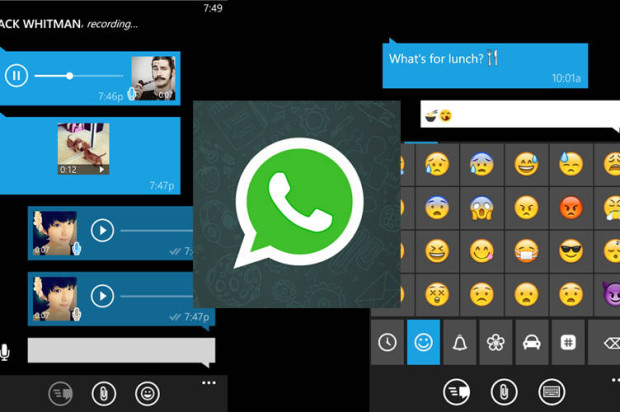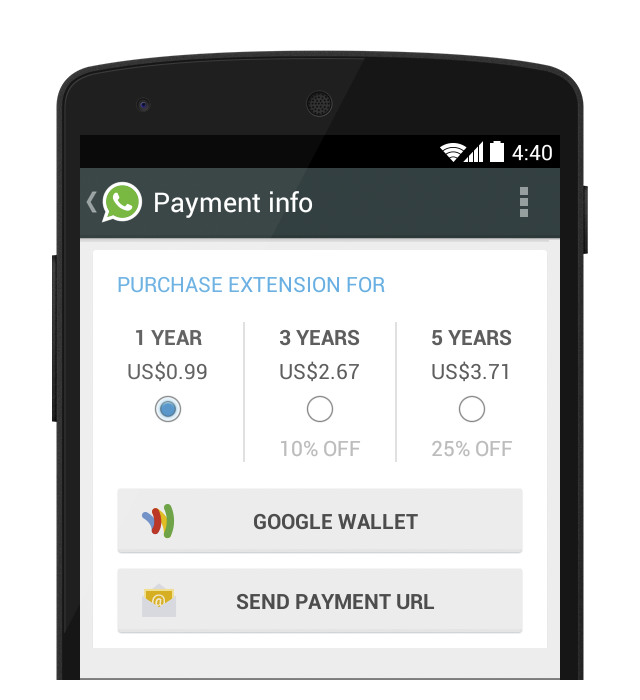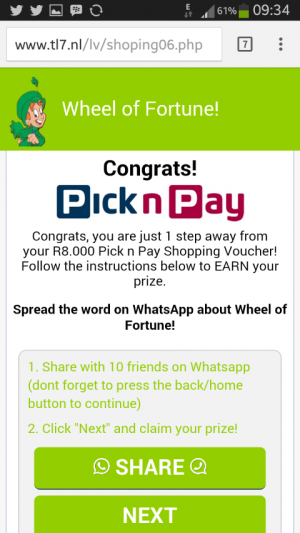The next frontier for WhatsApp is commercialization and monetization. Facebook CEO Mark Zuckerberg and WhatsApp founders Jan Koum and Brian Acton are reportedly looking for ways to make money from the messaging solution without selling advertising.

The most intriguing of the new plans for WhatsApp would be a service that lets consumers “chat” directly with brands, Zuckerberg announced at a developer conference in March. That apparently means Facebook is planning to set up a new service to provide instantaneous communication between customers and businesses.
WhatsApp, which provides instant cross channel communication, could be the example for such a service. Customers would have one place where they could contact a business.
The major use for this would be for customer service. For example, a stranded driver could use WhatsApp to instantly call a tow truck, or a customer could inquire on the delivery date for an Amazon.com order.
It is not clear how exactly Facebook would make money off of such chats. The most likely means would be to charge businesses a fee for the service. Another would be to take a small percentage of each transaction conducted over WhatsApp.
Buying Over WhatsApp
Obviously, one of the goals of such a service would be to allow customers to order products and services and pay for them through WhatsApp. That would obviously involve adding a digital wallet similar to Apple Pay or PayPal to WhatsApp. Chinese users of the popular messenger solution called We Chat can already pay for a wide variety of goods and services.

There are numerous videos of Chinese paying for goods from vending machines with their phones online. The payments are transmitted through WeChat.
An example of how such a service could be used would be to transmit a grocery list to a supermarket over WhatsApp. Supermarket employees would pull and bag the order and have it ready for the customer to pick up. The customers could then use WhatsApp to pay for the order when she reached the store.
The American supermarket operator Kroger has already developed such an app and is testing it at some of its stores. One of the major flaws with such a solution is payment; customers still have to go into the store to pay for the order. A digital wallet would allow customers to pay for the groceries before arriving at the store.
That way they could simply pick up the groceries from an employee or even a locker. An interesting solution would be to have a drive up so the customer would not even have to get out of the car to pick up the groceries.
A One-Stop Ecommerce Solution
A strong possibility for WhatsApp will be to transform the service into a one-stop ecommerce solution. This would be an easy-to-use app that would allow customers and businesses to perform a wide variety of functions, including ordering, payment, and customer service.
Therefore we should expect a WhatsApp for business at some point. This might replace phone numbers or transform telephone numbers into one point, where a business can receive all of its communications.

Another potential development could be customized communications channels for business that operate on a cross-platform basis. This might allow a person in India to do business directly with a firm in America or somebody in the United States to place an order directly with a factory in China.
In the future, customers might be able to buy a wide variety of products, including airline tickets, insurance products, financial services, and possibly groceries, directly through a WhatsApp marketplace. A logical extension of this would be to integrate WhatsApp with popular online marketplaces such as Amazon.com or Alibaba.
Even More Emoji
Another development we will see in the near future is the increased personalization of WhatsApp. In September 2015 Tech Times reported that there is a button on the Android version of WhatsApp that gives users access to a wide variety of fascinating emoji.
Some of the new emoji include the middle finger, a popular insult in the United States, and the Vulcan salute from Star Trek. These features are hidden, possibly in an attempt to get users to search through WhatsApp in order to explore all the new features.
WhatsApp Wants to Be Your Phone Company
Many of the new features are also designed to entice more people to the WhatsApp platform. This includes a low data usage mode for those that only want to use the app to make voice calls. The idea behind the feature is to let people make lots of calls without using up their data plans.

A logical inference from these reports is that WhatsApp wants to be your phone company. People will turn to it to make telephone calls rather than to call directly because calling through WhatsApp would be far cheaper.
Therefore at some point WhatsApp might start issuing its own phone numbers or some other form of identification. That would make it easier to track users and to monetize WhatsApp. It could also be another product that WhatsApp could sell directly to the public through Google Pay or the App Store.
What to Expect from WhatsApp
The most likely developments from WhatsApp in the near future will be a payment solution and more personalization. My guess is that any major business applications or phone numbers could be years away.
Technically, a payment solution could be easily implemented right now, but it would face a wide variety of legal hurdles. These include banking laws, restrictions against money laundering, and tax authorities. Ecommerce would have to face customs restrictions, and there would have to be some means of blocking people from sending or paying for illegal products over WhatsApp.
Therefore expect limited testing of new WhatsApp features in various places around the world. One way the company might do this would be to secretly add such features to the app in order to see how many people find and use the features. Smart users should watch WhatsApp carefully.
We should also expect more efforts to add ecommerce to WhatsApp because Facebook does need to start paying for its expansion at some point. It will also need to find some way to pay back phone companies that provide the networks by which WhatsApp is accessed.
Expect to see the monetization of WhatsApp within the next few years, possibly with the appearance of a payment feature on the solution. After that, look for a wide variety of goods and services to be sold directly to the public through WhatsApp.
